#french ban of hijab
Text
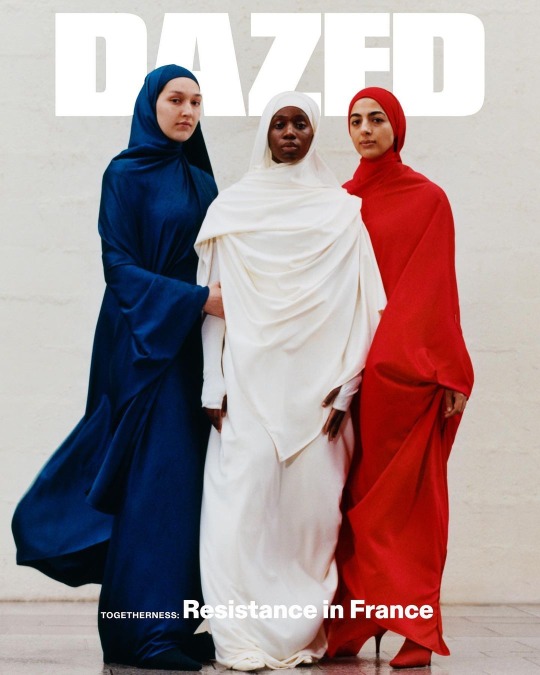



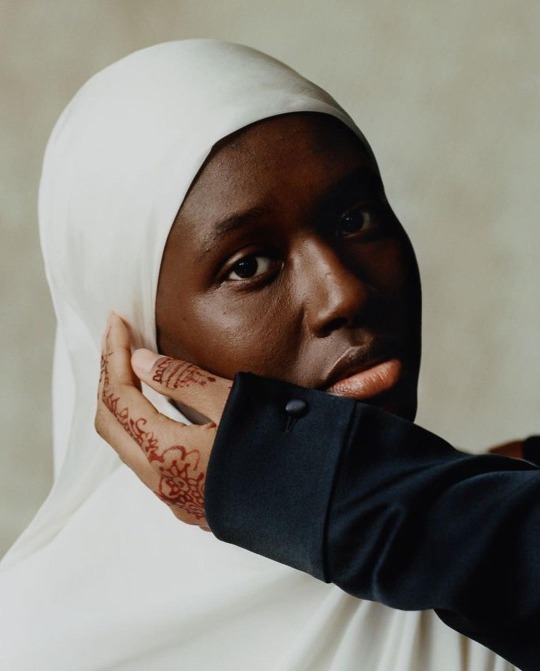
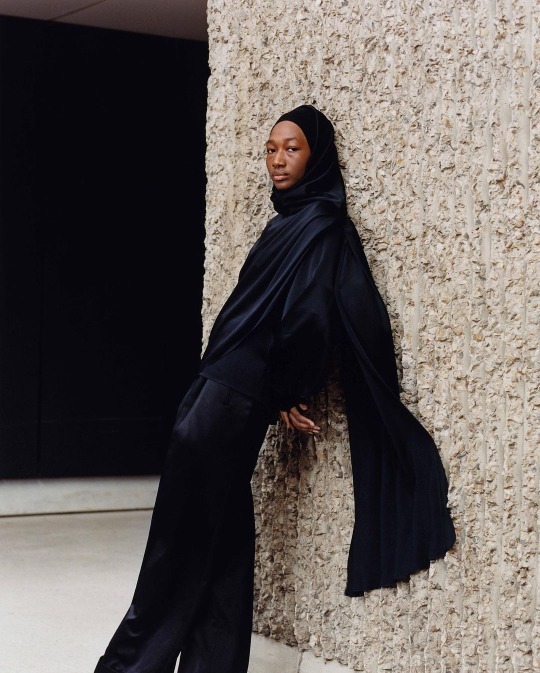
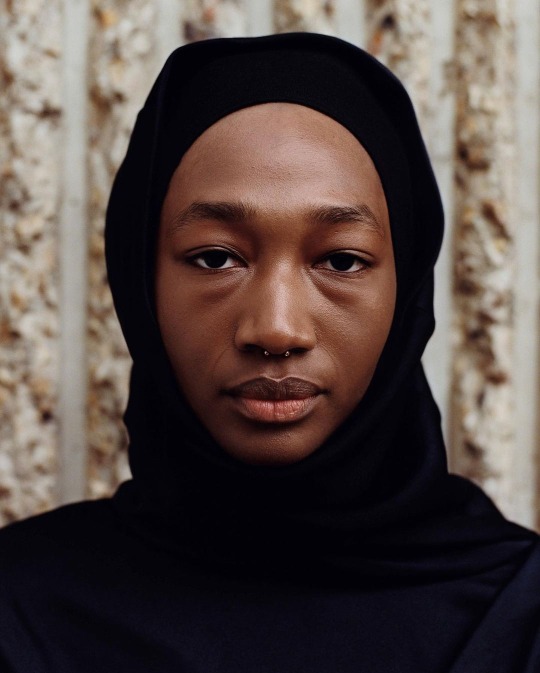
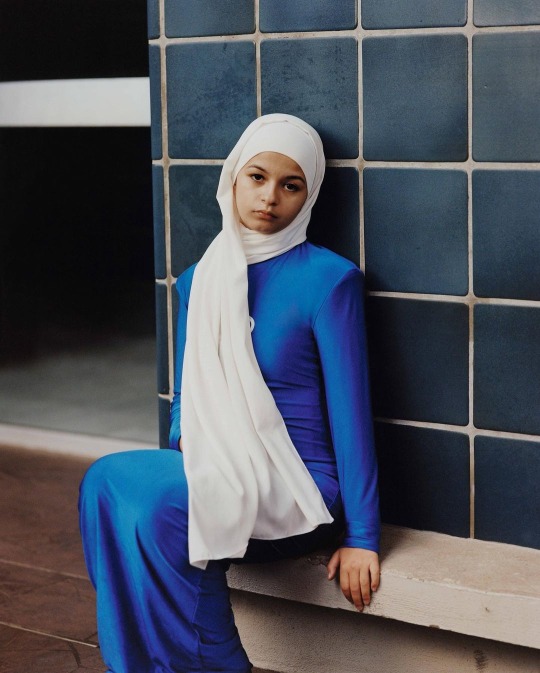
Togetherness: Resistance in France by Dazed shot by Solène Gün
#dazed#dazed digital#dazed magazine#ib kamara#solène gün#photography#photoshoot#hiba latreche#sarah b#ania tayri#loubna archives#les hijabeuses#hijab#french ban of hijab#hijab ban#my upload
550 notes
·
View notes
Text

Racism exists in every country…..
#I can’t believe I have to say this out loud but here we are#there are RAGING racists in every single nation - I promise you that#people out here finding a racist in a country and saying ‘this is why I don’t like______ country’#and it’s like? honey name a country and I’ll find 10 racists on the internet from the capital of that country in 3 minutes#no country is better than another - there are TERRIBLE PEOPLE EVERYWHERE#like talking about France as if it’s progressive when hijabs are practically banned in any public area😵💫#as if French people ain’t racist as hell to their own citizens….give me a break please#one tweet and you thought you ate that?#England players get just as much racists abuse from their own fans when they draw#like let’s find something new to talk about
4 notes
·
View notes
Text
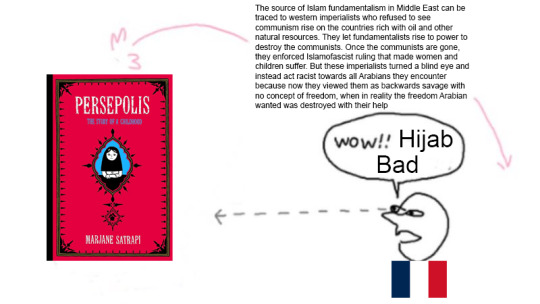
#Like I'm 10000% convinced Persepolis was popular on French because of that#Otherwise we wouldn't have violent hijab ban#The part where Marjane's dad said Iran will not know peace so long as it still has oil... lalalala NOPE hijab must be banned!!!!
0 notes
Note
🔥the hijab debate in France
i've seen one particular and very silly take on it repeated a lot in left-wing circles which is that the hijab ban is in any meaningful way the result of 'atheism'--like, people who inexplicably take at face value the french right's argument that this is a matter of 'secularism' and then proceed from there to 'well, guess secularism is bad'. like, if you think marine le pen's position on the hijab comes from her sincere ideological commitment to irreligiousity and is therefore relevant to forming a criticism of atheism i have an eiffel tower to sell you
563 notes
·
View notes
Text
The Daroga is actually an extremely important character to the themes of Phantom of the Opera
Many people might not know this but living as a Muslim/brown person in the west ( especially France… see: burqab ban, burkini ban, hijab ban, etc) is extremely difficult for some. Not to mention in a world post 9/11. Not to mention ( probably) in the 1890’s like in Phantom of the Opera where orientalist art and inaccurate and often dehumanising portrayals of the Middle East and it’s people ( muslims, arabs, Persians etc) were common and were used to justify colonialism.
In classic literature there’s only like, ONE character who is brown and is treated like an actual human being by the narrative and is presented as a central cast member to boot: and that’s the Daroga/ The Persian in Phantom of the Opera. And even then, every adaptation after either replaces him with a white person or has an incredibly disingenuous and inaccurate portrayal of him and his ethnicity/religion. Heck, in the Phantom Susan Kay book he’s given the surname “Khan” which isn’t even Persian it’s a PAKISTANI name.
Every other presumably brown/POC character are written animalistically and antagonistically. E.g Heathcliff from Wuthering Heights and Bertha from Jane Eyre. Bertha especially who is just used as an obstical/metaphor instead of an actual genuine character who deserves her own nuance and voice.
Now, back to the tittle, why do I think The Persian’s mere existence and especially with him being Persian/Muslim is inexplicably tied to the themes of POTO? Because he’s just like Erik and completely unlike Erik at the same time. In the book he’s constantly described as wearing as astrakhan cap/ a fez. Something quintessentially Middle Eastern and exposes him as ethnic right away to the eyes of the then European public. Both Erik and The Persian have sides of them that the society they live in at large shuns/dehumanises/condemns. For Erik it’s his face, and for The Persian it’s his culture/ religion/ race. But unlike Erik, The Persian has the choice to “ take it off” or assimilate more into society. He can, and it was better for him if he wore, a top hat but he CHOOSES to wear a fez. And he never takes it off. While he CAN and he has the chance to be more accepted in society than he already is.
But Erik can’t “take it off”, he can’t take off his face.
Though we don’t know much about the Persians’ beliefs, it’s safe to assume he was probably Muslim since Persia has been a Muslim country for a long time ( ignore the one we have now lmao). And I like to think that even in France he doesn’t give up this one part of him. He could just convert to whatever the majority religion in France was at the time and he would be more assimilated into French society, but he doesn’t . He actively chooses to keep parts of who he is even though they put him at a disadvantage. In contrast, Erik would give anything and does try everything ( even to phycotic lengths ) to be considered “ Normal” in society.
And throughout all of Erik’s efforts the only one who was ever really there for him was The Persian. But Erik dismisses him constantly.
I like to think that The Persian stayed because he understands Erik to a certain degree, and I like to think that Erik resents him because he doesn’t use every chance he gets to assimilate into society. To be considered normal. Sometimes Erik quite literally would kill for. Instead hanging onto every part that makes him who he is even when it only isolates him further.
#phantom of the opera#classic litterature#andrew lloyd webber#phantom of the opera musical#The Daroga#Nadir Knan#erik the phantom#erik destler#christine daae#raoul de chagny#gothic romance#gothic fiction#gothic literature#Orientalism#colonialism#imperialism
248 notes
·
View notes
Note
The audacity of calling france the most islamophobic country in europe. At least do some research before spreading hate based on prejudice. (source : https://www.pewresearch.org/global/2019/10/14/minority-groups/)
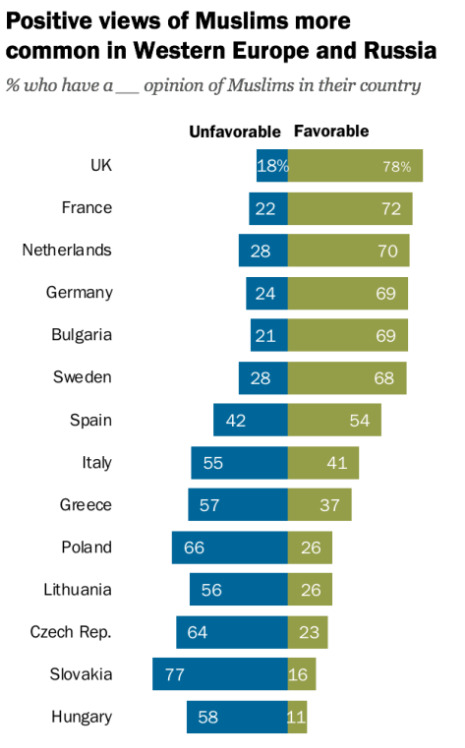
You seriously made a side account just so you could lazily throw a Pew statistic without any sense of statistical analysis and critical thinking?
Don't tell this loser about how Muslims are discriminated against on institutional levels and how there is a ban on religious symbols, especially the demonisation of Hijabs and various other Muslim clothing. But wait, just this very recent, why was a cop rewarded a million dollars after murdering a Muslim boy? Don't tell them either about how they constantly silence Palestinian voices when they direct their criticism towards the illegal settler state.
You never addressed the rise of antisemitism and racism in your country either, btw.
Remember, it is always morally correct to despise the French.
254 notes
·
View notes
Text
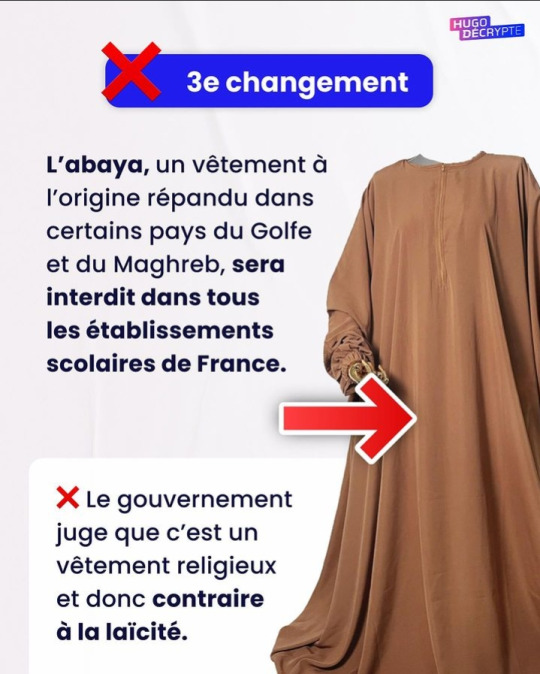
This is nauseating. The French government has banned the wearing of abayas to school. This includes both students and faculty. Teenagers and grown women alike are now no longer allowed to wear one of the few things they have left under strict French laicity laws. If it is anything like the restrictions against hijabs, burkas, chadors and niqābs, this means these women will not be allowed inside a school building with one on, and will be restricted from entering the premises while wearing one.
Unlike a hijab or other headcovering, this cannot simply be removed. Students are going to be sent home and miss educational hours because the government said they cannot wear a dress, because of religious backgrounds, entirely ignoring cultural backgrounds and the fact that it is one of the few things these girls have left to hold on to their culture and faith.
I school in a large city. Over half the women in my classes sport an abaya, because they are already forced their head coverings off at the door in the name of peace and laicity, are forced to give in to Islamophobic, European sentiment, and now they cannot even wear a long dress. Teachers who give up their prementioned garments for the name of educating the youth, now have to give this up as well. The French government also bans burkinis and any sort of modest, covering bathing suit, and has for years, in the name of 'hygiene', instead pushing for speedos and two pieces.
They give different excuses, but it is all the same, and this is the most blatant form yet. This dress has been banned for women and children to wear in school because christians think it shows too much faith. We eat fish on fridays as a nationwide standard, and this shows too much religion. This dress in the eyes of the french government, is anti secularist. This is horrifying, and I haven't seen anything about it on Tumblr yet, but I am disgusted. This is Islamophobia, always has been, and terribly, continues to be.
English translation under the read more.
Header:
3rd Change
First paragraph:
The abaya, an article of clothing with widespread origins in several Gulf States and the Maghreb, will be prohibited in all educational establishments in France.
Second paragraph:
The government has judged that this article of clothing is religious garb and thus contradictory to laicity.
[Vêtement could also be garment, whatever you prefer.]
#emergency broadcast system#rentrée scolaire#rentrée 2023#i dont even know what to tag this i just want to spread the word because i need people to understand what happens in france.#france#francais#sorry if this is not well worded i just found out and i am jacks raging bile duct!
152 notes
·
View notes
Text
Jewish Nathaniel Kurtzberg headcanons
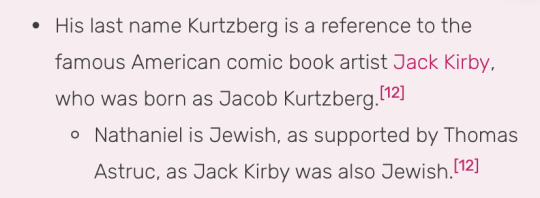

It is canon that Nathaniel is Jewish, evident in his surname and absence from the Christmas special. However because "religion is a secular matter and cannot be portrayed in a children's TV show" (🙄), Nathaniel's heritage won't be represented in any of the episodes, so I'll be writing these headcanons.
Nathaniel (like Marinette, Adrien, and their classmates) was born between late 2000 and mid-2001.
The law on religious display in public schools (la loi sur les signes religieux dans les écoles publiques) was signed on March 15, 2004.
The law on face-coverings in public (la loi interdisant la dissimulation du visage dans l'espace public) was passed by the Senate on September 14, 2010.
TW for references of antisemitism and Islamophobia
Nathaniel's great-grandparents were German Jews who fled to France shortly before World War II
his family is not Orthodox but they are religious, they go to synagogue, celebrate the holidays, follow kosher, etc.
Nathaniel has always been a shy, quiet kid but his parents raised him to be assertive and to question authority if necessary
the first time Nathaniel realizes he is different is when he is three years old and starts preschool, during lunch he can't eat what the other children are eating in case the food is not kosher
his parents contact the preschool, who refuse to provide a kosher/pork-free option or let Nathaniel pack his own lunch, they compromise to let him go home for lunch instead
December rolls around, and the other children are excited about Christmas, except for Nathaniel, who is excited about Hanukkah but can't help but feel a bit left out
at six years old, another boy in his class starts running his hands through Nathaniel's hair out of the blue, "I heard that your people have horns, where are yours"
at eight years old, a girl in his class sees the gold Star of David necklace that Nathaniel always wears and starts bombarding him with questions
Nathaniel knows that she has no bad intentions but can't help feeling a bit uncomfortable and othered
at nine years old, during a class debate on the hijab ban, another boy says how anyone who wears their religious symbols are not truly French and should go back to where they came from, leaving Nathaniel flushing with shame and anger
at eleven years old, he begins attending Collège Françoise Dupont
on his first day of middle school, Principal Damoclés makes him remove his Star of David necklace
he is afraid but looks the principal straight in the eye and refuses, "this is my religion and my identity," he says, his heart pounding and his voice shaking
after a few more resists, Principal Damoclés suspends him
when he goes home to his confused parents, Nathaniel breaks down in tears as he explains Principal Damoclés suspending him on his first day of middle school for his necklace
his furious parents storm over to the school to confront the principal, demanding he allow their son back to school immediately and for him to wear the symbol of his religious pride
Principal Damoclés lets him back the next day but Nathaniel never wears his necklace to school again, only at home and in non-school settings
the day he returns to school, fellow classmate Alix Kubdel approaches him
Alix explains her family heritage: her family is of Algerian origin and Muslim, and while she can pass as white, her parents and brother have faced racism, Alix's mother have even had her hijab ripped off by an old white man on public transit and no one defended her
Nathaniel knows that he, as a white-presenting boy, cannot relate to the experiences of Alix or her mother, but appreciates having a friend who understands
he invited Alix to his bar mitzvah
he loves learning about the Holocaust, it is painful but his ancestors' strength and resilience make him proud, he can't stand how all of his classmates seem to stare at him during class whenever it comes up
in his third year, he is placed in Miss Bustier's class with Marinette Dupain-Cheng, Chloé Bourgeois, Sabrina Raincomprix, Rose Lavillant, Juleka Couffaine, Lê Chiến Kim and Max Kanté
when he arrives at school one morning he sees a swastika drawn in permanent marker on his desk, drawn by Chloé "Can't he make sushi like everyone else" Bourgeois
he reports it to a furious Miss Bustier, who sends Chloé to Principal Damoclés, who lets her off with a mere warning, which infuriates Nathaniel and his parents
as much as he wants to stay home from school the next day, Nathaniel is determined to not let Chloé win and shows up at school the next day
a sneering Chloé comes up to him, but before Chloé could open her mouth, fellow classmate Marinette Dupain-Cheng spoke up
"you suck, Chloé." Marinette glares at the blonde. "you speak of him as if he is below you, but he's got more nerve in his finger than your entire body"
Rose and Juleka join in, "Leave him alone, Chloé" "go pick on someone your own size, someone with an overinflated head like you"
Chloé started bullying Marinette
meanwhile, Nathaniel starts to fall for Marinette and becomes closer to Rose and Juleka
in the middle of his fourth and final year, he gets over his crush on Marinette/Ladybug and instead starts falling for Marc Anciel, with whom he works on their Ladybug comics
he confides his feelings for Marc to Alix
"you might be bi or pan," Alix, who is aromantic and an expert in LGBT terminology, explains to him
he first comes out as bisexual to Alix, who is nothing but incredibly supportive and proud of her best friend
Rose and Juleka (canon girlfriends!) are the next to know, and he grows closer to the girls than ever
Nathaniel is hesitant to come out to his parents, however: he feels like he is betraying the Jewish identity his parents instilled in him since childhood by coming out to them
he begins to research queer Jewish identity on the Internet and hears stories of others from all across the globe, who are queer, Jewish and proud
Nathaniel eventually asks out Marc, who agrees to be his boyfriend and he is happier than ever
Marc isn't Jewish but is more than happy to learn about Jewish culture and to fight anyone who dares to say anything antisemitic, whether about Nathaniel or not
since he started dating Marc, Nathaniel gains the courage to come out to his parents, who immediately accept him, much to his pleasant surprise
"you are our son, and our religion accepts everyone," his father says
"love is love, and if this boy Marc makes you happy, that's all that matters," his mother says
he gets into the same design school as Marc and Marinette for high school
in his first year of high school, he and Marc finally publish their Ladybug comics, which quickly become successful
towards his final years of high school, he begins studying for the baccalauréat while continuing his relationship with Marc and their comics and applying for his birthright trip
on his final year of high school, he passes the bac littéraire along with Marc and Marinette, and the three reunite with their middle school friends to celebrate
soon after graduating high school, he leaves for birthright (Alix cried buckets of tears at the airport)
the trip is the best ten days of his life, Nathaniel feels at home as he connects with other French Jews and Jews from across the globe and visits the cultural sites
shortly after his return to France, Nathaniel invites Marc to the Seine, where he gets down on one knee, much to the latter's delight (they both cry tears of joy that night)
his and Marc's wedding was the most beautiful day ever, they have a traditional Jewish wedding filled with ketubah, chuppah, glass breaking, joy, light and love
#mlb#mlb fandom#miraculous#miraculous lb#miraculous ladybug#miraculous fandom#miraculoustalesofladybugandcatnoir#nathaniel kurtzberg#jewish#jewblr#jewish characters#juif#thomas astruc#laïcité#damocles#alix kubdel#muslim characters#jewish muslim solidarity#miss bustier#caline bustier#chloé bourgeois#marinette dupain cheng#rose lavillant#juleka couffaine#marc anciel#marcaniel#marcnath#nathaniel x marc#marc x nathaniel#queer jews
30 notes
·
View notes
Text
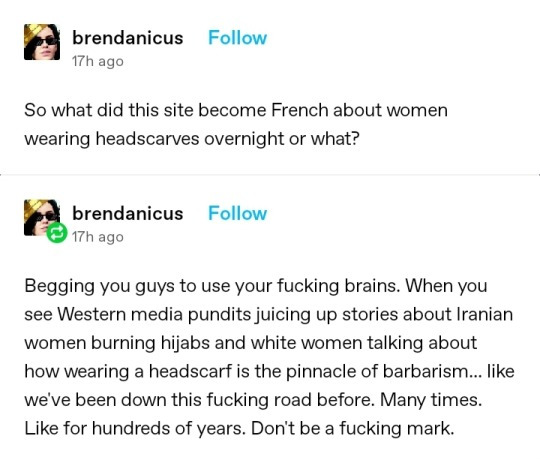
Hi, yes, a woman was killed by the state for not wearing a hijab in Iran is enforced on penalty of death and people think that's bad. The whole point is that is should be a choice to wear it or not, and the alternative is not outright banning the hijab like the French keep trying to do but for states all over the world to stop telling women what to do with their fucking bodies.
229 notes
·
View notes
Text
Pupils will be banned from wearing abayas, loose-fitting full-length robes worn by some Muslim women, in France's state-run schools, the education minister has said.
The rule will be applied as soon as the new school year starts on 4 September.
France has a strict ban on religious signs in state schools and government buildings, arguing that they violate secular laws.
Wearing a headscarf has been banned since 2004 in state-run schools.
"When you walk into a classroom, you shouldn't be able to identify the pupils' religion just by looking at them," Education Minister Gabriel Attal told France's TF1 TV, adding: "I have decided that the abaya could no longer be worn in schools."
The move comes after months of debate over the wearing of abayas in French schools.
The garment is being increasingly worn in schools, leading to a political divide over them, with right-wing parties pushing for a ban while those on the left have voiced concerns for the rights of Muslim women and girls.
"Secularism means the freedom to emancipate oneself through school," Mr Attal told TF1, arguing the abaya is "a religious gesture, aimed at testing the resistance of the republic toward the secular sanctuary that school must constitute."
He said that he would give clear rules at the national level before schools open after the summer break.
Hijab campaign tweets pulled after French backlash
The Islamic veil across Europe
In 2010, France banned the wearing of full face veils in public which provoked anger in France's five million-strong Muslim community.
France has enforced a strict ban on religious signs at schools since the 19th Century, including Christian symbols such as large crosses, in an effort to curb any Catholic influence from public education.
It has been updating the law over the years to reflect its changing population, which now includes the Muslim headscarf and Jewish kippa, but abayas have not been banned outright.
The debate on Islamic symbols has intensified since a Chechen refugee beheaded teacher Samuel Paty, who had shown students caricatures of the Prophet Mohammed, near his school in a Paris suburb in 2020.
The announcement is the first major policy decision by Mr Attal, who was appointed France's education minister by President Emmanuel Macron this summer at the age of 34.
The CFCM, a national body representing many Muslim associations, has said items of clothing alone were not "a religious sign".
18 notes
·
View notes
Note
Swissa wasn't wearing a khimar (head scarf) already forbidden I'm France? In schools? Like I heard French were banning women with Hijab from teaching in school *and* girls from wearing it? I don't know how true is this but it's extra islamophobic already and now they are attacking Abayat?
The khimar/hijab/jilbab are all forbidden in French schools since 2004. It’s also forbidden in a lot of jobs.
The thing about Abaya is that girls kept saying that it wasn’t religious (which is true) some racist teachers and schools decided that it was religious and started telling girls to remove their dresses. They started accusing them of wearing skirts that were too long anyway a mess.
Schools ended up asking the government to say if loose long dresses/abaya are considered to be a religious sign and therefore are included in the 2004 law. The previous Ministry of education refused to answer and said “each school must decide depending on each situation” (just as stupid as saying it’s religious) Teachers and all didn’t like that answer they wanted a clear yes abaya are religious clothes so they are included in the 2004 law and therefore cannot be worn or no abaya are not included in the 2004 law because they are not religious and they can be worn.
The new minister of education talked and said that Abaya are religious and that therefore they are included in the 2004 which means they are not allowed.
11 notes
·
View notes
Note
I don’t think people understand that there is truly nothing that citizens can do. I’m not saying that protesting is bad or ineffective or whatever, because if the goal is to make your government think that you’re against what they’re doing, then you’ve accomplished your goal.
But If you think it is to change the mind of an intransigent government, then very few protests achieve their goals and this one will probably achieve nothing.
No matter how much protesting the French do, France keeps tightening its laws on religious expression (banning hijab, etc) and the age of retirement (raising it). No amount of protesting is going to help France get better because the other option that isn’t the current president is a far right nationalist with ties to Putin.
When it comes to Palestine, the Egyptians have their trucks LINED OUTSIDE of Gaza ready to enter and feed the masses, but the governments refuse so they cannot do anything.
We the people do not have as much power as we are told that we have.
Yey
But keep being vocal about it.
2 notes
·
View notes
Text
To the anon abt fatimah baraghani.
1st: Idk why indian leftists are comparing this to whats happening in India. Indian gov is right wing AND aligned with US interests. Iranian gov is right wing AND not aligned with US interests. This is why US cares about Iranian womens rights but not Indias hijab bans or Saudia womens oppression.
Re: Iran's history & fatimah. In the 19th century, there were many places that arose against religious clergy. Because it was religion that was comprised the ruling class ideology. French revolution was against the church, Russian revolution against the tsar as tsar was upheld by the othorodox church that gave them legitimacy and held like 90% of land. Im sure in iran it was a similar story. But when US was became thr world power after ww1, in the case if iran it acked the Shah who implemented forced unveiling laws and forced modernization. The most effective opposition to the Shah/US imperialism was the clergy. All sorts of leftists joined together against the Shah and western imperialism and ofc communists were eventually killed by the Iranian regime eventually afaik.
But the main point is that in iran, religious conservatism became tied with anti-imperialism. In India, it is the opposite. Religious conservativism is tied with being a comprador to US. In Afghanistan, Egypt and Pakistan, US imperialism was conservative force unlike iran where it was a modernizing force. Since US backed taliban, muslim brotherhood and Zia ul Haq respectively who were objectively 100x worse for woman's rights than the Iranian regime. Iranian regime for instance has better education for women thsn even under the Shah. Whereas in Afghanistan, Egypt and Paksitan the conservative forces didn't even want girls to go to school etc. So in these latter 3 countries, the anti-imperialist tendency is actually non-conservative, or was at some point in time.
I mean all this to say is that it all depends on the country. Many countries had native womens and worker movements (the case of fatimah here). But with colonialism and imoerialism, the native working class and women's movement forces are halted and the country focuses entirely on anti-imperialism as it restructures the economy and gives an entirely different color to the previous working class and womens movement.
When it comes to anti-imperialist response, countries where imperialism forces modernity have anti-imperialist culture of anti-modernity. In countries where it forces conservativism, the anti-imperialist forces are accordingly antagonistic by being pro-modernity. I haven't seen much of this latter one since the 70s tho. And still, all of this is politicization happens only to women's bodies. So it is gendered and misogynistic
38 notes
·
View notes
Text
Reading El Guindi's "Veiling Resistance" brought issues of dress codes and modesty policing to the forefront of my mind. While many people are aware of the controversial French ban on hijabs in schools, I haven't heard many Americans talking about the recent move to ban the abaya. The abaya is a long, loose, shapeless dress, which is commonly worn by Muslim women but not exclusive to their faith. The French government's aim in doing this is to promote "secularism" and theoretically allow students to form their own beliefs without outside pressure. However, it ends up harming more students than it helps because they cannot openly express their religious or cultural dress. In this NPR segment, one teacher notes that some students also wear to abaya for their own confidence and comfortability. This law is a really great example of why enforcing specific modesty standards is harmful regardless of who it's coming from and what their reasoning may be.
2 notes
·
View notes
Text
The French abaya situation simply explained by someone who doesn't give a fuck about all that (2)
[But not giving a fuck doesn't mean you can't educate and inform yourself about the situation]
Let's continue:
So, social media. One of the reasons abaya became such a big thing in France is because they became a new trend, a true fashion, on social media. You have lots of influencers promoting the abaya, the same way in French youth there is a true passion and fashion of all things coming from the Muslim countries, and it has been a phenomenon not unique to France or these recent years (already in 2016, Dolce and Gabbana had created a luxury line of abayas and hijabs). The problem however lies within the fusion the social medias created between pure fashion and religious influencing. A lot of the same young influencers and socila-media-teenage stars that promote the abaya will do so invoking wrong arguments such as "This is what a true Muslim woman shall wear" or "This is a piece of clothing that is part of Islam". Many social media accounts and so-called "teenage experts" will claim that the abaya is a perfect replacement of actual "religious clothing" for Muslim people, and this fueled an entire warped view by French youth of the abaya as a symbol of their faith.
This is actually the result of a vague coupling with the rise of extreme Muslim beliefs and practices in France - it is no news that ever since the terrorist attacks of the 2010s in France, Muslim extremists, terrorists and fanatical groups have been gaining power and influence on French territory. Everybody heard about the case of a small town which got so controlled by Muslim religious figures that they managed to forbid toy shops from sellng dolls with faces, and enforced a "no-face dolls" policy. It was a religious ban, not a government one, and yet everybody acted as if it was the actual law. And the influence of this more extreme and sterner, more forceful form of Islam is very open on social media, especially when it comes to young teens. There is a lot of TikTik videos and Instagram accounts and Snapchat circles centered for around around "hacks" and "tips" designed for Muslim kids and teens to practice their religion inside a public school. This ranges from videos and tutorials telling you how to perform your prayers and rites hidden from view in remote corners of schools, to "hacks" and "tips" about hiding burkas inside your bags so you can put them on when inside the school's ground. Somehow, the idea of wearing your religion upon you is treated as a fashion, and a new trend for kids is to do what looks like here as a religious resistance or religious offensive against laicity and secularism. And that is the very sad thing with social-media fed youths. They do not understand laicity and secularism - they do not understand how it works or why it is here. They do not see that as a way to keep the government neutral and to prevent a religion from taking control and crushing all of the others, the way Catholicism massacred all Protestants back in Renaissance, or the way the collaborationist government of WW2 used "Catholic" religious arguments to help the Nazis kill Jews. No, they see laicity as a personal attack on their faith, and as a way to crush their religion and to ban Islam as a whole (and only Islam, because of course, those same influencers insist that only Islam is discriminated by laicity, and that Christians and Jews are in league with the oppressors). For them, to be able to show and practice their religion in their home, in their mosques, in the street is not enough - they need to have it everywhere, including school, hospital and government. A very revealing census made people discover recently that more than half of the underage Muslims today believed that the law of the Coran was above any law of the Republic, and that they had the right to do illegal things if it was within their "religious right". This is very worrying because France works on the very reverse system, where the law of the Republic is supposed to come above and before the law of any religious text. If the law says for example that gay marriage is legal or that abortion is legal, no Biblical, Talmudic or Coranic argument should be stronger than this. That's how France is supposed to work, but a lot of kids do not understand that anymore, and cannot get in their heads that you can have religious freedom assured by a government that refuses all religion.
Edit: I checked back the census, and it was 57 percent of the young Muslims of France.
As a side note before going forward: know that all I talk about applies to PUBLIC schools. There are private schools that are religious in nature, oh yes. You have Christian schools, and Jewish schools, and Muslim schools all around France. But they are PRIVATE schools, who do not receive money from the government, and are not provided with teachers by the state. If you want to become a religious institution you can, but you have to cut tie with all public oganizations and all government-affiliated bodies. Once more, this is the essence of laicity: you can have private schools belonging to any kind of friggin religion (including the Star Wars religion if you want), as long as you stay within the law and do not do any illegal thing.
Ultimately, I believe that the opinion and reaction of the French Council of the Muslim Cult, and the words of the great imams of the largest French cities ill speak for themselves enough. In a first time, they objected to the interdiction of the abaya on a very simple ground: the abaya is a cultural outfit, not a religious one. In fact, they were very keen on reminding people that, by the canonical Muslim law, there is no actual true religious sign or religious clothing. You do not need to wear anything to be a Muslim, and they insisted on presenting the abaya as a fashion and a trend that came from Africa, and more precisely from the Maghreb. They also pointed out that maybe some women wore it out of a misguided religious sense, but that most of the time it was because of their body complex and because of dysmorphic reasons - they saw a lot of young women who preferred large, covering clothes such as those worn in Muslim countries because they wanted to hide their bodies or their perceived "flaws". And these people are of course right on all that, and you cannot deny what they say. However, in a second time they added a concession that is a very needed and important nuance: some of the great imams publicly added on television that, indeed, a part of the problem of the abaya is those that wear them. They explained that the young people who wore and promoted the abaya as a symbol of Muslim faith or as an emblem of Islam were clearly people who had a very lacking knowledge or misguided appreciation of Islam, and that a lot of non-expert, non-practicing Muslims actually said a lot of nonsense when involving themselves within the abaya debate. Of course, for religious experts such as themselves, banning the abaya is idiotic because the abaya is not religious. But, in a second time, they had to admit that there was also a lot of ignorant Muslims who treated the abaya as religious, and thus added fuel to the fire, or more exactly were the symptom of a deeper and bigger problem which is the misunderstanding and misteaching of the Muslim religion.
(Again, I have a few final points to highlight, so there will be a third and final post to this series)
2 notes
·
View notes
Text
Contrary to popular belief the French are self serving cunts who do not riot for the rights of Muslim ppl and immigrants in the country, they riot only when the white frenchies are negatively affected by government. When the hijab ban happened not one of them said a peep. Don't ever give the French or any force of colonialism credit.
3 notes
·
View notes